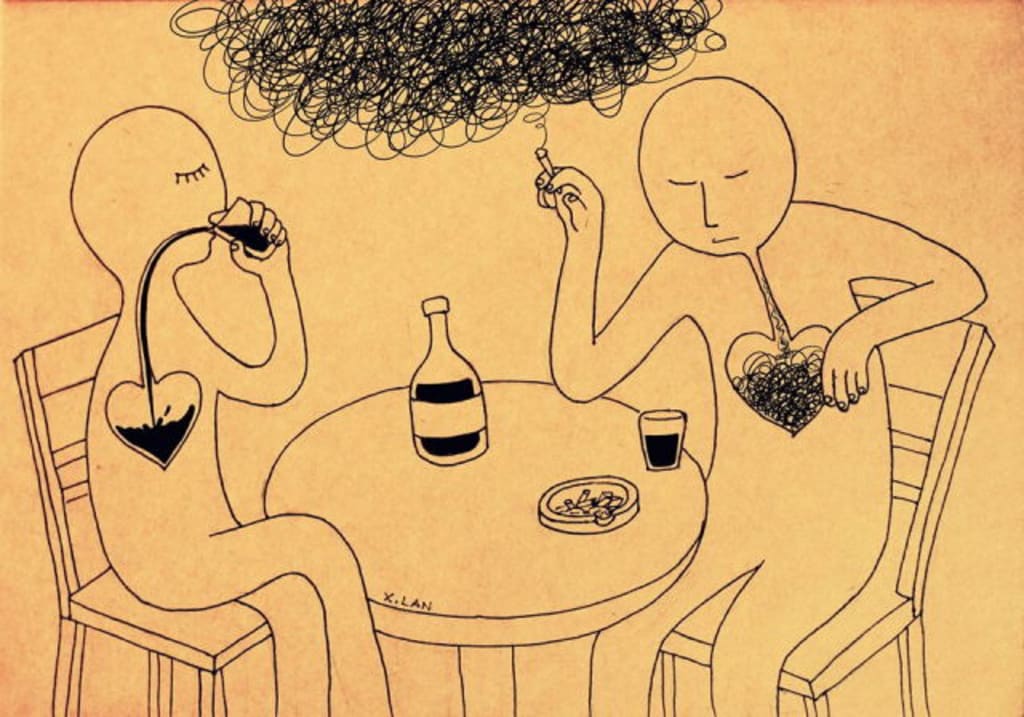
Take a second and think about all the movies you watch and have watched, the cartoons, the Disney movies, and the comedies on TV. Remember when you sang along with those Disney characters that you were so fond of, the very funny moments you watched of an overweight actor fall over because of their size, think about all those cartoons you watched when the girl with the glasses was considered the nerdy one, and the girl with the pink outfit was the appealing one. Music, movies, tv shows, magazines, and advertisements promote gender stereotypes to children where in today's world children are more involved with the internet, and, therefore, more affected by media. The images and stories kids see in the media play a significant role in framing their sense of "acceptable" in society.
How many of you watched at least two Disney movies in your life? Definitely all of you. Disney movies are very popular worldwide, and we have all sung along to your favorite songs, and they taught us how important family is and what true love is. However, these movies have been negatively influencing young innocent minds. Think about the movie Tangled, which presents a Princess Rapunzel who doesn't dare leave her tower until a handsome man arrives to protect her and guide her to the lights she has always been dreaming about. This storyline only makes young girls believe they need a man to protect them and help them at a time of need.
Disney characters, both female and male, have body frames that are perfectly structured and faces that are flawless. When is the last time you saw a curvy princess? All of the Disney princesses have tiny waists and a perfect bone structure. This only explains why girls are developing eating disorders and are obsessed with plastic surgery. Did you know that about 80% of nine-year-olds are in diets and that the number of eating disorder cases has been rising? The ethnic princesses in these movies, that have been recently introduced, are exotic, hypersexualized, and objectified. For instance, in the movie Aladdin, Princess Jasmine performs a seductive act to distract the evil Jafar, while Aladdin attempts to steal the magic lamp. This scene only influences young girls to believe they can use their bodies in order to get what they want in life, while not noticing how dangerously they are exploiting their bodies in this way.
Furthermore, this doesn't only influence girls, boys believe they should "man up" and make the first move, or be strong enough to save the helpless princess. This pressure makes boys develop anxiety and depression if they feel like they're incapable or not good enough. The princes in Disney movies are presented as strong, masculine, and protectors of all women. If you haven't noticed, they never cry, express feelings, or reveal any signs of emotional weakness. The prince in Beauty and the Beast is a perfect example of these factors. The Beast kept Belle as a prisoner in his mansion and expressed extreme anger when she refused his authority. This can be seen in the way he demanded that she ate dinner with him even when she declined. This portrays male dominance over women as a normalcy and how men should never accept a "no." In addition, the Beast's aggression and violence may affect a child's perspective of how to deal with situations. Children who view media violence are more likely to have increased feelings of hostility, decreased emotional response to the portrayal of violence, and injury from violent behavior through imitation. In Hercules, there is a harmful stereotype that being masculine means you are sexually appealing. Masculinity in these movies is an attractive man with big muscles that is often paired with a foil played by a small and/or fat male character that plays comic relief, suggesting that their size and characteristics are less "masculine." These sidekicks often have "feminine" qualities as they advise the hero. This only presents an unattainable standard of men, thus, alienating a large demographic of men.
On average, children age 2–5 spend 32 hours a week in front of a TV. In several movies, the separation of genders and the stereotypes are introduced evidently as the woman is usually simpleminded, not as intelligent, and involved in nothing but fashion and the way she looks. While the man, if very intelligent, may be represented as a geek, short, and not as appealing. This reminds me of a TV series The Big Bang Theory that presents Leonard, one of the protagonists that are very intelligent, but just like his other scientist best friends, he is socially awkward! None of them know how to talk to women and have no sexual contact whatsoever. Moreover, women who are scientists are presented as less attractive, wearing glasses, are not blond, are shorter or oversized, and are socially maladjusted. What image does this provoke? That smart women don't take care of their appearance, have no sexual life as they are not considered "sexy" while attractive women, who are blond, and skinnier are seen as less intelligent and successful. Exposure to stereotypes and discrimination within shows lead us into following and believing in the same behavior, and since children are more naive, they are more likely to fall into this trap. How many of you have watched a comedy movie with an overweight person as the protagonist and have laughed hard at the individual without feeling guilty? Are you starting to feel guilty now because you laughed at the oversized person for falling when attempting to get on the treadmill? You're not to blame—society is, for releasing such footage and images for the whole world to laugh! Therefore, children watching such movies are only led to laughing at the obese child next to them in gym class since this funny image is framing bigger children that are incapable of throwing the ball as high.
To conclude, as technology is progressing, children are more likely to be influenced by media and the stereotypes that are promoted daily. Disney movies have been telling girls to "act like a lady" and wait for your prince charming to help you in a time of need, instead of promoting the image of an independent woman dealing with her problems on her own. In addition, they've been telling boys to "man up" and save the princess in a time of need, in order to find love, instead of telling them to embrace who they are and save themselves once in a while... Media should start promoting intelligence, strength, and beauty in both genders, it shouldn't be the "battle of the genders"; it should be the "battle against the stereotypes."
About the Creator
Natalie G.
Instagram: _nataliesenses_






Comments
There are no comments for this story
Be the first to respond and start the conversation.